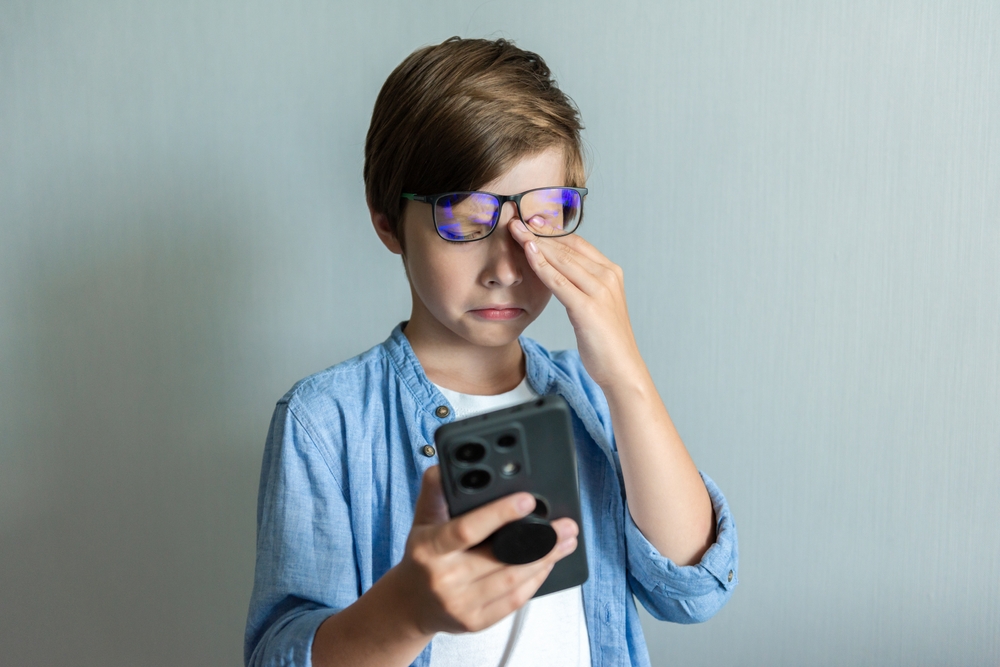
Myopia is becoming increasingly common, especially among children and young adults. It causes distant objects to appear blurry while close-up vision remains clear. As this condition progresses, it can significantly impact daily life and increase the risk of serious eye diseases later on. At Image Eye Care, we believe that understanding the root causes of myopia and exploring effective management options is essential to protecting long-term vision health.
What Causes Myopia?
Myopia usually develops during childhood and may continue to progress into early adulthood. While the exact cause can vary from person to person, several key factors are known to contribute to its development.
Genetics play a significant role. Children with one or both parents who are nearsighted have a higher likelihood of developing myopia themselves. This inherited risk makes regular eye exams especially important for families with a history of vision problems.
Visual habits are another major factor. Prolonged periods of close-up work can place strain on the eyes and contribute to the progression of myopia over time. This has become increasingly relevant with the rise in digital device use among children and teens.
Additionally, a lack of outdoor time has been linked to the development of myopia. Research suggests that spending more time outside during childhood may help delay or reduce the risk of myopia, possibly due to exposure to natural light and opportunities to focus on distant objects.
The Importance of Pediatric Eye Exams
Regular pediatric eye exams are essential for the early detection of myopia and other vision issues that can affect a child’s development. Since children may not always recognize or communicate that they are having trouble seeing, comprehensive eye exams are often the only way to catch vision problems early. Detecting myopia in its early stages allows for timely intervention, which can help slow its progression and reduce the risk of more serious complications later in life.
Why Myopia Management Matters
Left unaddressed, myopia can lead to serious eye health complications later in life, including an increased risk of retinal detachment, glaucoma, and myopic maculopathy. Beyond long-term health risks, untreated myopia can also interfere with a child’s learning and development. Clear vision is essential for reading, writing, and seeing the board in class—activities that are crucial to academic success. Children who struggle to see clearly may fall behind in school or avoid activities that require distance vision.
Solutions for Myopia Management
At Image Eye Care, we offer treatments that not only correct vision but also slow the progression of myopia in children and young adults. These treatments include:
· MiSight 1 day® contact lens is the only FDA approved soft contact lens indicated to slow the progression of myopia in children, aged 8-12 at the initiation of treatment. These daily disposable lenses reduce the stimulus that triggers elongation of the eye, slowing down the rate of myopic progression. These lenses are comfortable and well-tolerated, and are approved for patients as young eight years old.
• Low Dose Atropine Eye Drops: This treatment involves using a diluted form of atropine, which has been shown to slow the elongation of the eye. The drops are applied nightly and are well tolerated by most children, with minimal side effects.
• Multifocal Soft Contact Lenses: Multifocal contact lenses provide different zones for seeing at various distances. They not only correct myopic vision but also help reduce the stimulus that causes the eye to grow longer, which is the underlying cause of worsening myopia.
Supporting Families in Weldon Spring and Surrounding Areas
Understanding the causes of myopia is the first step toward protecting your or your child’s long-term eye health. We are committed to helping families in Weldon Spring and surrounding areas manage myopia with proven strategies tailored to individual needs.
Schedule your child’s eye exam at Image Eye Care to learn more about how we can help manage and slow the progression of myopia. Visit our office in Weldon Spring, Missouri, or call (636) 447-2244 to book an appointment today.




